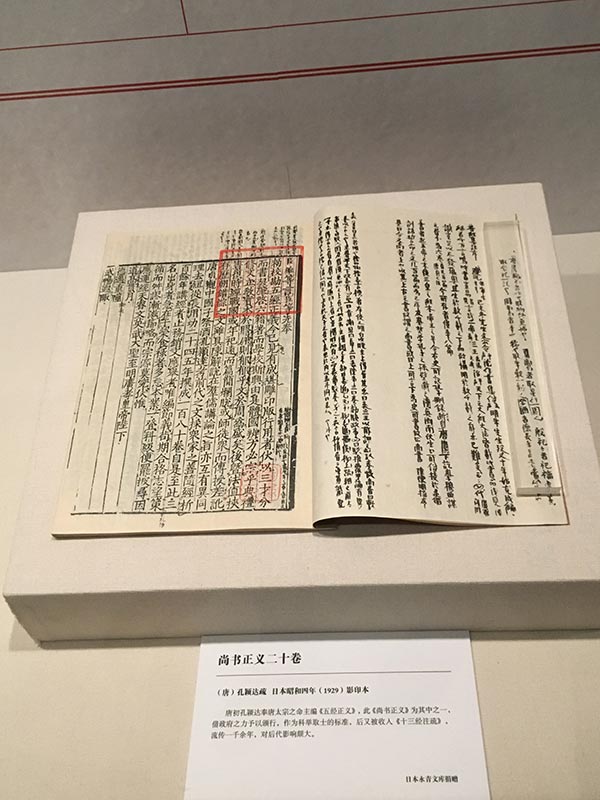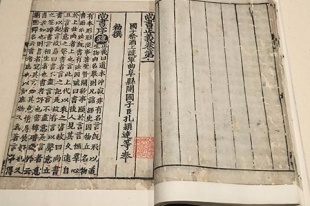Former Japanese PM donates large number of books to Chinese library


But the original book was absent in China for about a millennium until 1796, while some copies of Qunshu Zhiyao were brought back to China by merchants.
"Only then did Chinese scholars begin to rediscover the book," Lin explains. "Such mutual exchange is an example of the cultural communication between China and Japan."
A copy of the 1787 edition from Japan is among exhibits at the Beijing display.
From 630 to 894 AD, Japan sent multiple envoys to China to learn about the political system and social rituals from Tang officials.
An exhibited copy of Tanglyu Shuyi (Explanation of Tang Law) is another example. The statute law in China back then influenced the formation of the Japanese legal system, according to Lin.
Also included among exhibits are Japanese versions of well-known Chinese classics such as the 1836 edition of Zizhi Tongjian (History as a Mirror), which is a 11th-century work of Chinese historiography.
In the Edo period, foreign trade was tightly controlled by the Tokugawa shogunate. China and the Netherlands were the only countries allowed to do trade with Japan.
"Almost every Chinese ship to Japan then carried books," Lin says.
The number of imported books in Japan rocketed in the early 19th century.
"Once a new book was published in China, it only took a few months before it was taken by traders to Japan," he continues. "They had an impact in enlightening Japanese society."
The exchange also triggered many Edo-era Japanese scholars to write books on imperial Chinese politics, and some old copies are among the books donated by former prime minister Hosokawa.
According to Luo Shugang, minister of Culture and Tourism, more cooperation between the NLC and Eisei Bunko will follow on collections, studies and exhibitions.
"We will use this opportunity to improve communication between Chinese and Japanese libraries," he said on Tuesday, adding that it would be a way to acknowledge the donation of the books.





































